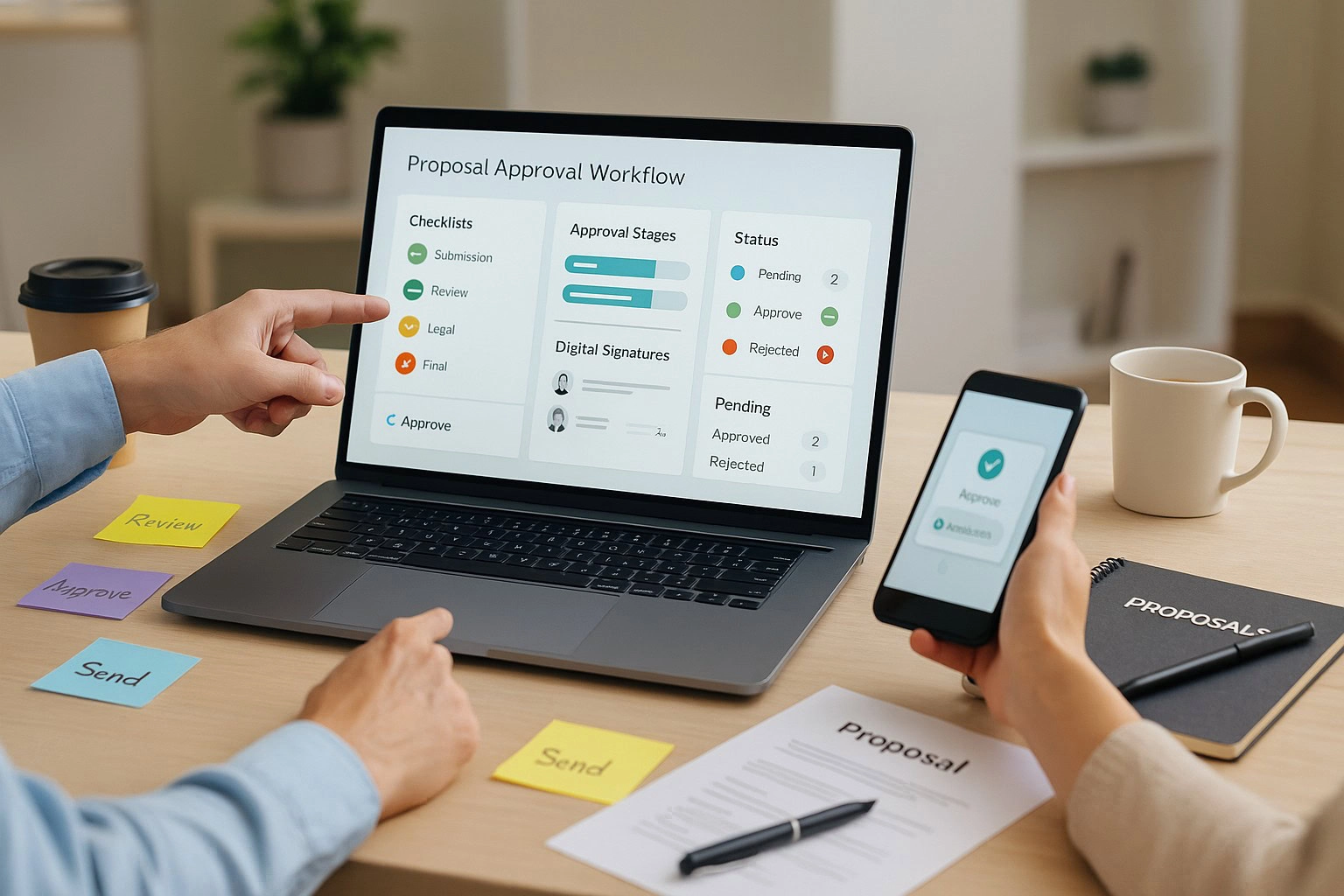Choosing the freelance path opens up an exciting world of autonomy, creativity, and flexibility. As a freelancer, you manage your own schedule, select your projects, and often get to work from anywhere. Yet, alongside these perks, many discover that maintaining a healthy work-life balance becomes a unique—and ongoing—challenge. Self-employment brings blurred boundaries between work and personal life. With no clear division between “office hours” and personal time, balancing both can feel elusive, impacting overall well-being.
Why is it so important for freelancers to intentionally balance work and life? A healthy work-life balance is key to sustained productivity, satisfaction, and personal growth. This article explores common hurdles freelancers face when striving for this balance, shares actionable tips for creating boundaries, improving time management, prioritizing self-care, managing client expectations, and leveraging the right tools. Throughout, you’ll find practical advice to help you maintain a fulfilling and successful life as a freelancer—one that values your personal time as much as your professional achievements.
The Unique Challenges Freelancers Face in Achieving Work-Life Balance
Freelance work promises flexibility—but it also introduces hurdles not seen in traditional offices. Without fixed work hours, it’s easy for projects to spill over into evenings and weekends, making it tricky to fully disconnect. Many freelancers work from home or switch between different locations, so a clear workspace often doesn’t exist, further blurring lines between work and personal life.
- Irregular Work Hours: Freelancers may find themselves responding to client messages late at night or pulling long stints to meet last-minute deadlines. The absence of a regular schedule makes it hard to separate work from personal life.
- Undefined Workspace: Kitchen tables, couches, or even beds double as office spaces—diminishing the natural boundary most employees have when leaving a physical office.
- Temptation to Overwork: The drive to grow earnings or keep clients happy can lead to saying “yes” too often, resulting in burnout.
- Inconsistent Workload: Freelancers regularly juggle busy seasons and dry spells, causing stress and making it tough to plan personal time or relaxation.
- Difficulty Setting Boundaries: Without a boss setting office hours, it’s up to the freelancer to decide when work ends and real life begins—a line that can easily get crossed.
These unique work dynamics aren’t simply logistical challenges—they can impact well-being and increase the risk of burnout. Understanding them is the first critical step to building healthier, more sustainable habits as a freelancer.
Why Work-Life Balance is Essential for Freelancers’ Well-Being and Productivity
A healthy work-life balance is not just a feel-good notion for freelancers—it’s a critical foundation for well-being and professional performance. When you allow your work life to consistently encroach upon your personal space, feelings of stress, fatigue, and isolation build up. This can ultimately affect both your mental and physical health and diminish the quality of your work.
- Mental and Physical Health: Studies have shown that maintaining boundaries leads to lower rates of anxiety and depression among remote workers. Chronic overwork, on the other hand, is linked to sleep problems, poor concentration, and even physical ailments like headaches and back pain.
- Productivity: Burnout is the enemy of focus. When you regularly take breaks, make time for hobbies, and disconnect from your workspace, you come back with renewed creativity and sharper problem-solving skills.
- Long-Term Sustainability: Balancing professional and personal obligations promotes overall well-being and ensures that you can sustain your freelance business over the long haul, rather than becoming another burnout statistic.
In fact, financial health and work-life balance go hand in hand. When you’re well-rested and focused, you make better decisions about your business, from pricing your services to tracking expenses and saving for taxes. Curious about which financial habits can support your freelance objectives? Check out Essential Financial Metrics Every Small Business Owner Should Track for a more holistic approach.
Setting Clear Boundaries: The Art of Separating Work and Life as a Freelancer
Establishing boundaries is the backbone of a healthy work-life balance—especially as a freelancer. Clear boundaries help you avoid the traps of overwork and create an environment where you can genuinely unwind.
- Create a Dedicated Workspace: Even if you work from home, designate a specific area that’s “work only.” This physical boundary primes your mind for focus and signals when work is done for the day.
- Establish Work Hours: Define your start and end times and stick to them. Whether you prefer mornings or late nights, communicate your availability to clients and treat these windows as you would an office job.
- Communicate Boundaries: Set clear expectations with clients about when you’re available—and more important—when you’re not. Use email autoresponders or status updates in chat apps to reinforce this.
- Leverage Technology: Turn off notifications after hours and use apps that separate work and personal communications. Many freelancers find it helpful to have dedicated devices or accounts for business use.
Remember, boundaries aren’t walls—they are healthy, flexible tools that help you honor both your professional and personal commitments. Over time, they’ll help you maintain a healthy work-life balance that feels sustainable and rewarding.
Mastering Time Management: Strategies for Freelancers to Achieve a Healthy Balance
Effective time management is a freelancer’s greatest ally. By learning to organize your day and prioritize tasks, you can protect your well-being and manage deadlines without feeling overwhelmed.
- Use Digital Calendars: Schedule blocks for both work and personal activities. Tools like Google Calendar or Outlook can send reminders, helping you to transition smoothly between tasks and downtime.
- Time Blocking: Allocate set periods for specific types of work—like mornings for creative tasks and afternoons for admin. This keeps context-switching to a minimum and increases your productivity.
- Prioritize Tasks: Start each day by identifying your top priorities. Break large projects into actionable steps to keep progress steady and milestones clear.
- Project Management Tools: Platforms like Trello, Asana, or even Invoice Crowd’s built-in tools allow you to monitor progress, deadlines, and client communications in one place, streamlining your workflow.
- Schedule Regular Breaks: Avoid back-to-back meetings or long stretches at your computer. Set alarms to remind yourself to step away, move around, and reset.
Missed deadlines and overwhelm stem from disorganization or unrealistic expectations. By leaning on automation—for instance, automating invoice creation and recurring payments—you’ll save precious hours for higher-value activities or personal time. Curious about more time-saving techniques? Discover best practices that utilize your invoice management system for further ideas.
Prioritizing Self-Care and Well-Being: Preventing Burnout as a Freelancer
Prioritizing self-care is not indulgent—it’s necessary for long-term freelance success. Without the guardrails of traditional employment, freelancers must take personal responsibility for their physical and emotional well-being.
- Integrate Exercise and Movement: Add walks, stretches, or gym sessions to your routine. Physical activity fuels your mind, chases away fatigue, and sharpens focus.
- Pursue Hobbies and Leisure: Creative outlets and downtime aren’t wasteful—they refresh your perspective and prevent work from consuming your entire identity.
- Healthy Eating and Hydration: Prepare nutritious meals ahead of time and keep a water bottle at your desk. Good nutrition supports mental and physical stamina.
- Mental Breaks: Practice techniques like deep breathing, meditation, or just stepping outside for a few minutes. These small breaks help lower stress and recharge you.
- Schedule Downtime: “Me time” should be blocked into your calendar with the same commitment as work meetings. Whether it’s a day off or a few sacred hours per week, this time is essential to recharge.
Maintaining a healthy work-life balance demands conscious effort, but the payoff is immeasurable. Looking for more on managing your energy and productivity? Visit The Art of Time Management: How to Maximize Productivity and Minimize Stress for valuable insights and tactics.
Managing Client Expectations and Workload to Achieve Work-Life Balance
As a freelancer, your relationships with clients largely shape your workload and stress levels. Managing expectations and workload effectively requires open communication, wise negotiation, and the willingness to say no.
- Communicate Effectively: Set clear deadlines and turnaround times before starting any project. Keep clients informed about your schedule and notify them promptly about any changes or unexpected delays.
- Set Boundaries on Availability: Share your working hours upfront and let clients know when you’ll be offline. This helps clients respect your personal time and reduces pressure to respond immediately to every message.
- Learn to Say No: Taking on too many projects dilutes your focus and leads to rushed, lower-quality work. Politely decline extra work if your plate is full, or negotiate realistic timelines.
- Project Management Tools: Tools can help visualize your capacity and deadlines—making it easier to prevent overlapping commitments and bottlenecks.
- Prioritize Projects: Focus on high-value or most urgent assignments first, and avoid multitasking between too many tasks at once.
Staying proactive, honest, and consistent with communication reduces misunderstandings and keeps relationships positive. For additional guidance on maintaining healthy client relationships, see The Dos and Don’ts of Client Communication for Timely Payments.
Tools and Technology to Help Freelancers Maintain a Work-Life Balance
Technology can make or break your freelance routine. The right digital tools empower you to automate repetitive tasks, manage projects effectively, and stay organized—helping free up time for rest and personal growth.
- Time Management Apps: Tools like Toggl or RescueTime track where your hours go, enabling you to analyze and adjust your habits for maximum productivity.
- Project Management Platforms: Trello, Asana, and similar apps keep projects, deadlines, and files in one place—making it easier to visualize and manage your workload.
- Comprehensive Business Platforms: All-in-one solutions such as Invoice Crowd automate invoicing, track expenses, send payment reminders, and even support team collaboration. By handling the most tedious administrative chores, you regain countless hours each month.
- Use Case: Consider the challenge of tracking overdue invoices. Chasing late payments manually drains energy and interrupts your workflow. With automated reminders and scheduled invoicing within Invoice Crowd, freelancers can ensure on-time payments—minimizing admin hassle and mental fatigue.
- Expense Trackers and Financial Management Tools: Eliminate the stress of sorting receipts and calculating tax deductions at year-end. Automated expense tracking helps you see where your business stands at a glance, supporting both work and personal goal-setting.
Choosing the best tools for your workflow doesn’t have to be expensive. Explore how automation can save you money and streamline your back-office work in Tips on How You Can Save Money by Using Automated Invoicing Software. When technology works for you, achieving a work-life balance becomes far more attainable.
Building Support Networks: Connecting with Other Freelancers for Shared Experiences
Freelancing can feel solitary at times—but it doesn’t have to be. Building a support network with other freelancers and entrepreneurs provides accountability, perspective, and camaraderie.
- Join Online Forums and Groups: Platforms like LinkedIn, Facebook Groups, and niche freelancing communities offer a space to ask questions, swap advice, and share experiences.
- Coworking Spaces: These environments foster connection and routine, providing structure and reducing isolation.
- Accountability Partners: Pairing with another freelancer can help you both stay focused on goals and offer mutual encouragement.
- Professional Associations: Membership in industry groups provides learning opportunities and potential client referrals as well.
Not only do these connections offer practical support, but they also remind you that you’re not alone in facing the ups and downs of freelance life. For more approaches to networking creatively, check out Creative Networking Approaches for Small Businesses.
Tips and Strategies for Achieving a Healthy Work-Life Balance as a Freelancer
Achieving a healthy work-life balance as a freelancer is an ongoing journey. Here are practical tips and strategies drawn from the experiences of successful freelancers:
- Define Your Work Hours: Set a consistent schedule and communicate it to clients.
- Create a Dedicated Workspace: Maintain a boundary between personal and work zones, even in small spaces.
- Prioritize Time Management: Use calendars, checklists, and project management tools for smart planning.
- Take Regular Breaks: Give yourself permission to step away from the screen—your focus and creativity will benefit.
- Nurture Your Well-Being: Schedule time for exercise, hobbies, and rest.
- Communicate Expectations: Keep clients informed and set realistic deadlines.
- Say No When Needed: Protect your workload and personal time by declining excess work or projects outside of your scope.
- Leverage Technology and Automation: Streamline admin tasks to maximize your time for both work and life.
- Build a Support Network: Stay connected with peers for accountability and encouragement.
Adopting these strategies may not be instant, but consistency leads to rewarding balance and greater fulfillment as a freelancer.
Conclusion: Why Achieving Work-Life Balance is Important for Freelancers
For freelancers, achieving a healthy work-life balance isn’t just a luxury—it’s an essential component of professional sustainability and personal fulfillment. When you intentionally maintain this balance, you cultivate greater well-being, safeguard your productivity, and allow space for long-term growth in your freelance career.
Taking proactive steps—such as setting boundaries, managing time wisely, prioritizing self-care, and building a supportive network—sets the stage for lasting success. The use of digital tools and automation can further lighten your load, giving you more hours for life outside of work. Platforms like Invoice Crowd are especially useful for automating invoicing and expense management, letting you focus more on your craft and less on back-office logistics.
The benefits of a balanced freelance lifestyle are undeniable. Prioritize your well-being, explore new strategies, and embrace tools that strengthen your business while honoring your personal life. Your journey as a freelancer can be as rewarding and sustainable as you choose to make it.


